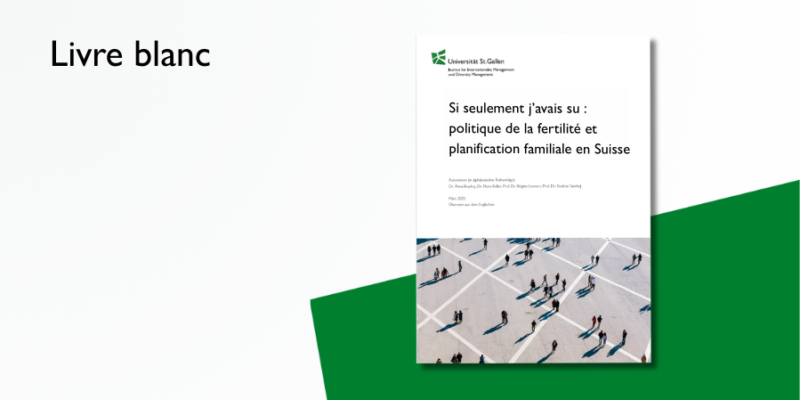
Putting Inclusion into Practice: Leadership in Action at the University of St. Gallen
Kategorie
KarriereBeitragstyp
BlogbeitragInclusion, trust, and adaptability are values that appear in many institutional mission statements. Living these values, especially across borders, timelines, and responsibilities, is something far more complex. During my fieldwork in Brazil for my PhD research, I experienced what it means when inclusive leadership goes beyond statements and actively creates the conditions for people to succeed.
At the Competence Center for Diversity, Disability, and Inclusion (CCDI) at the University of St. Gallen, I received the kind of support that reflects the best of values-based leadership. Through thoughtful planning, consistent encouragement, and genuine care, the leadership and management team made it possible for me to conduct successful fieldwork abroad. Their approach to leadership was not abstract; it was practical. It was demonstrated through actions that helped me stay grounded and maintain a sense of belonging throughout the entire experience.
Trust as a Foundation for High-Impact Work
From the moment I proposed returning to Brazil to conduct fieldwork, CCDI leadership responded with openness and trust. They recognized the potential impact of this research and saw distance not as an obstacle but as an opportunity. That perspective created a foundation of trust that gave me the confidence and autonomy needed to pursue meaningful work. This trust allowed me to create stronger partnerships with the St. Gallen Institute of Management in Latin America, the St. Gallen Institute for Business Ethics, and the Jean Monnet Centre of Excellence for Business and Human Rights.
Throughout the planning and implementation phases, management ensured that expectations were aligned while remaining flexible enough to accommodate changing needs. Their belief in the research's purpose allowed me to remain focused on the project's goals while staying connected to the Center's work. Because of this support, I was able to carry out interviews, visit jiu jitsu academies, and document leadership dynamics in culturally grounded ways.
Adaptability That Responds to Real Life
Even the best plans are vulnerable to disruption. I had initially planned to return to Switzerland by April 28. When an injury unexpectedly extended my stay in Brazil, the support I received from leadership was immediate and wholehearted. Rather than seeing the delay as an inconvenience, management responded with compassion and clarity.
They adapted internal timelines, ensured that my tasks were rescheduled without pressure, and maintained an open line of communication that allowed me to recover without losing touch with ongoing priorities. Their flexibility demonstrated the kind of leadership that prioritizes people, a principle too often left out of institutional decision-making. This allowed me to then attend two key events from the Brazilian government, the Seminar “The Role of the Corporate Sector in Promoting Equality: Possible Paths” from the Ministry of Human Rights and Citizenship, and a Congressional session in Brasilia honoring Mãe Stella de Oxóssi.
Coordination and Support Across the Team
Effective leadership is never isolated to one role. This is reflected in how teams communicate, plan, and care for one another. While I was abroad (especially during my recovery) team members stepped up in countless ways. From managing logistics to maintaining visibility and communications, the broader CCDI team helped ensure that everything remained on track.
This seamless coordination reinforced a message that meant a great deal to me: that I was still part of the team and that my contribution continued to matter. These everyday actions carried significant weight, helping me maintain momentum and morale through a period that could have otherwise felt disconnected. This coordination became even more crucial as we prepared to work on the 2025 Gender Intelligence Report.
Partnership That Makes Research Stronger
GIMLA and the Jean Monnet Centre of Excellence were also instrumental in supporting my research. Their guidance, institutional support, and thoughtful engagement from the leadership teams made the logistics of my fieldwork far more manageable. Their understanding of the local context helped deepen the quality of the work and reinforced its academic and social relevance.
I am especially grateful to the team at GIMLA for their steady presence, which included reviewing ideas, offering input, and ensuring that my time in Brazil remained productive and anchored. This partnership serves as an example of how regional engagement can elevate global research.
Inclusion Means Action
Leadership at CCDI did not simply promote inclusion — they embodied it. Through concrete decisions, proactive adjustments, and a genuine focus on well-being, management created a structure that allowed me to thrive even when plans shifted.
This experience reminded me that inclusion is not something that can be captured in a single policy or metric. It is something we create together through trust, empathy, and consistent support. I am grateful to be part of a professional community where those values are not just stated but practiced. The lessons from this experience will continue to guide my work, both in research, teaching, and leadership.
Key Takeaways
- Inclusion is action, not just intention: Leadership demonstrated that real inclusion is reflected in how people are supported, especially during moments of uncertainty or personal difficulty.
- Trust enables meaningful work: The confidence and autonomy provided by management made it possible for me to conduct high-impact fieldwork abroad.
- Adaptability strengthens teams: Management’s responsiveness after my injury showed how flexibility fosters both resilience and collaboration.
- Support comes from the whole team: Coordination, communication, and presence from all team members ensured continued progress despite distance and setbacks.
- Living the values matters: The collective response of the CCDI, GIMLA, and Jean Monnet Centre of Excellence reflected a commitment to care and inclusion that other institutions can learn from.
Das könnte Sie interessieren

Measurement and evaluation
A successful Diversity, Equity & Inclusion (DE&I) strategy is not only built on good intentions, but also on sound data and precise analysis. Whether you need to assess the current state, evaluate the success of existing measures, or provide a basis for strategic decisions –our measurement and evaluation tools provide data-driven insights to make inclusion sustainable and effective.




